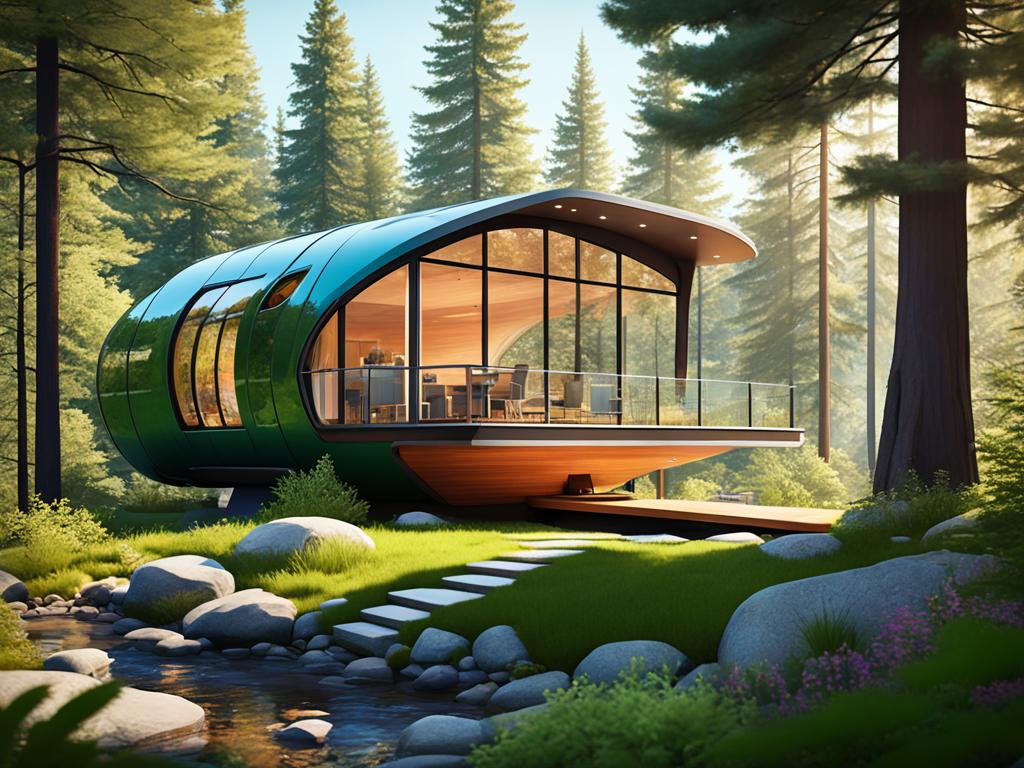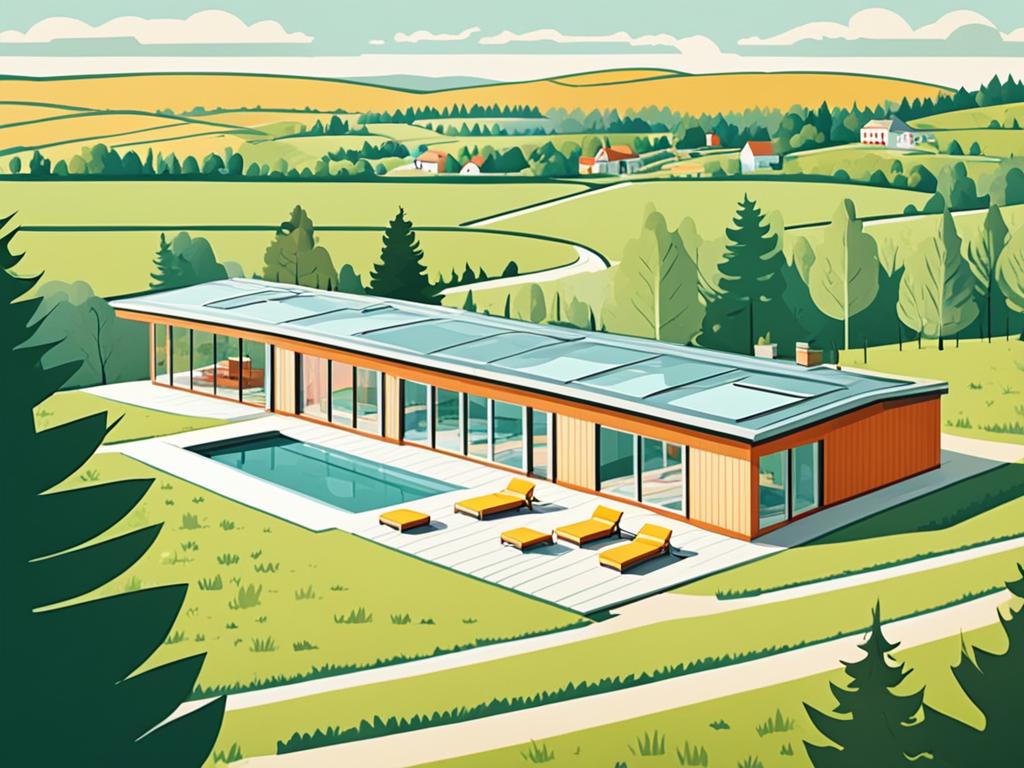The global modular homes market is expected to reach a value of £490.0 million by 2027, growing at a CAGR of 2.6% during the forecast period. Modular homes are prefabricated buildings or houses that consist of repeated sections called modules. This construction method involves constructing sections off-site and then delivering them to the intended site for installation. The market is driven by the demand for sustainable and affordable housing solutions.
Key Takeaways:
- The modular homes market is projected to reach £490.0 million by 2027
- Modular homes are prefabricated buildings made of repeated sections called modules
- The demand for sustainable and affordable housing is driving the market growth
- Modular homes offer cost-effectiveness and faster construction time
- The market is highly competitive with key players specializing in modular home design and construction
Market Size and Growth
The global modular homes market was valued at £420.0 million in 2021 and is projected to witness steady growth during the forecast period. The market is driven by the increasing adoption of modular construction techniques and the growing demand for custom modular homes. Modular homes offer several advantages such as cost-effectiveness, faster construction time, and flexibility in design. The market is expected to expand further due to the need for sustainable and energy-efficient housing solutions.
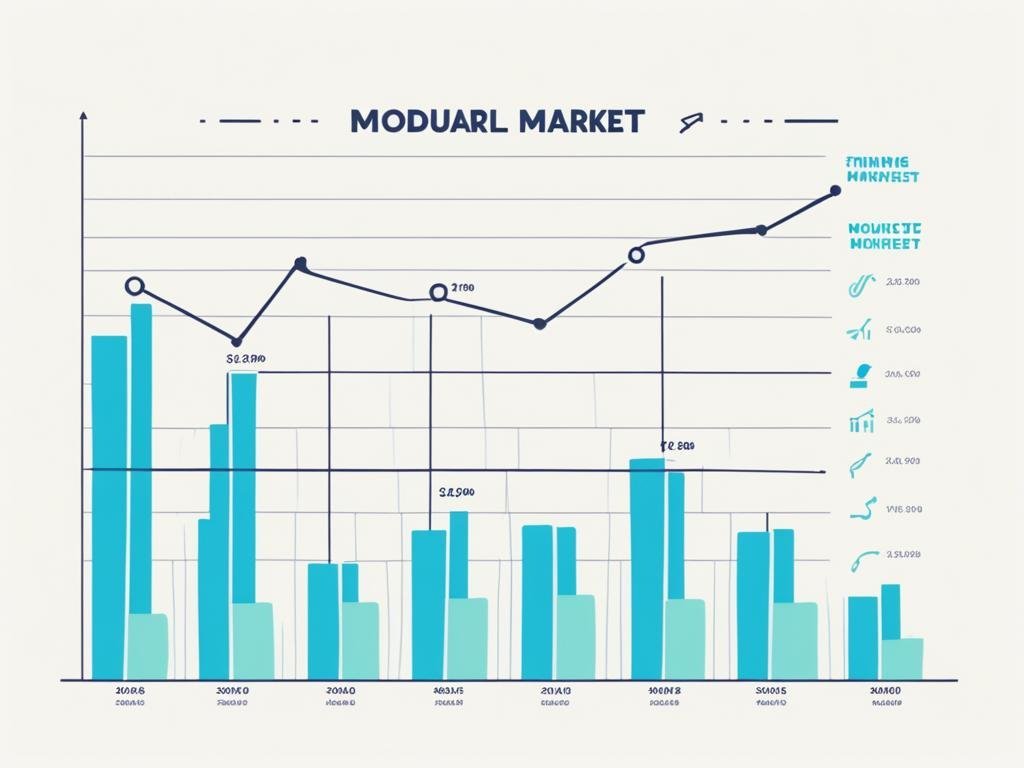
The market size of modular homes has been steadily increasing, with the demand for affordable and adaptable housing solutions gaining prominence. The modular construction industry is experiencing significant growth in response to the need for faster and more efficient building methods. Custom modular homes are in high demand as homeowners seek personalized designs and layouts that suit their specific preferences. This growing market trend is driving the expansion and development of the modular homes industry.
Key Factors Driving Market Growth
- Modular Construction Techniques: The increasing popularity of modular construction methods, which involve constructing building sections off-site and assembling them on-site, is a key driver for market growth. This approach offers advantages such as reduced construction time, improved quality control, and cost-effectiveness.
- Customization and Flexibility: The demand for custom modular homes is growing as homeowners seek unique and personalized living spaces. Modular homes provide the flexibility to customize design elements, floor plans, and finishes to suit individual preferences.
- Sustainable Housing Solutions: The need for sustainable and energy-efficient housing solutions is propelling the modular homes market. Modular construction allows for the integration of eco-friendly materials and energy-efficient systems, reducing environmental impact and utility costs.
The modular homes market is positioned for continued growth in the coming years. As the advantages and benefits of modular construction become more widely recognized, the market is expected to attract significant investment and experience advancements in design, technology, and manufacturing processes. With a focus on sustainability, affordability, and customization, the modular homes market will continue to play a vital role in addressing the global housing needs.
Key Players in the Modular Homes Market
The modular homes market is a highly competitive sector that features several key players operating on a global scale. These modular home builders play a crucial role in the prefab homes industry, bringing innovative designs and advanced construction techniques to the forefront. Some prominent companies in this market include Red Sea Housing, Westchester Modular Homes, Modular Space Corporation, Clayton Homes, Wernick Group, Algeco Scotsman, and more.
These modular home builders specialize in the design and construction of modular homes, catering to various customer preferences. They offer a wide range of options, ensuring that every homeowner can find a modular home that suits their needs and style. With a commitment to quality and customer satisfaction, these companies have established themselves as leaders in the modular homes market.
One of the key characteristics of the modular homes market is the continuous focus on modular home design. These companies are constantly pushing the boundaries of what modular homes can offer in terms of aesthetics, functionality, and sustainability. They leverage their expertise and experience to create modular homes that exceed customer expectations and provide a comfortable and enjoyable living experience.
Furthermore, advancements in construction techniques have also played a significant role in shaping the modular homes market. Builders are adopting innovative methods to streamline the construction process and enhance the efficiency and quality of modular homes. This commitment to innovation and improvement drives the modular homes market forward and allows the industry to meet the evolving demands of homeowners.
The modular homes market, with its key players and focus on modular home design and construction, continues to grow and evolve. These builders contribute significantly to the development and expansion of the prefab homes industry, ensuring that sustainable and stylish housing options are accessible to individuals and families.
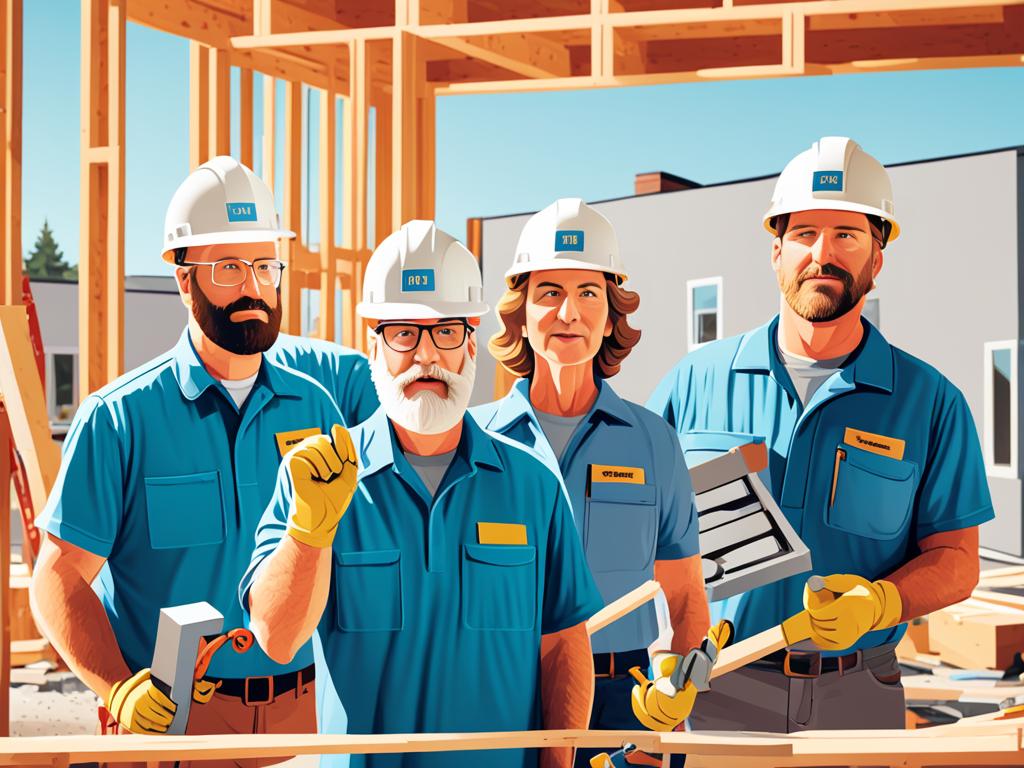
Future Outlook of the Market
The future outlook of the modular homes market in the United Kingdom is highly promising, with a steadily increasing demand for sustainable and affordable housing solutions. This growth is driven by various factors, including population growth, urbanization, and the need for housing in emerging economies. As a result, the modular homes industry is expected to experience significant expansion in the coming years.
Governments and industry players are actively focusing on developing innovative modular construction techniques to meet the growing demand for housing. This includes advancements in construction materials, processes, and design, ensuring that modular homes are not only cost-effective and efficient but also energy-efficient and environmentally friendly.
Modular Homes with Smart Technology Integration
One of the emerging trends in the modular homes market is the integration of smart technology. Builders and developers are incorporating smart home features into modular homes, offering residents seamless connectivity and enhanced control over their living spaces. From smart thermostats and lighting systems to voice-controlled assistants and security systems, modular homes are becoming increasingly integrated with the latest technological advancements.
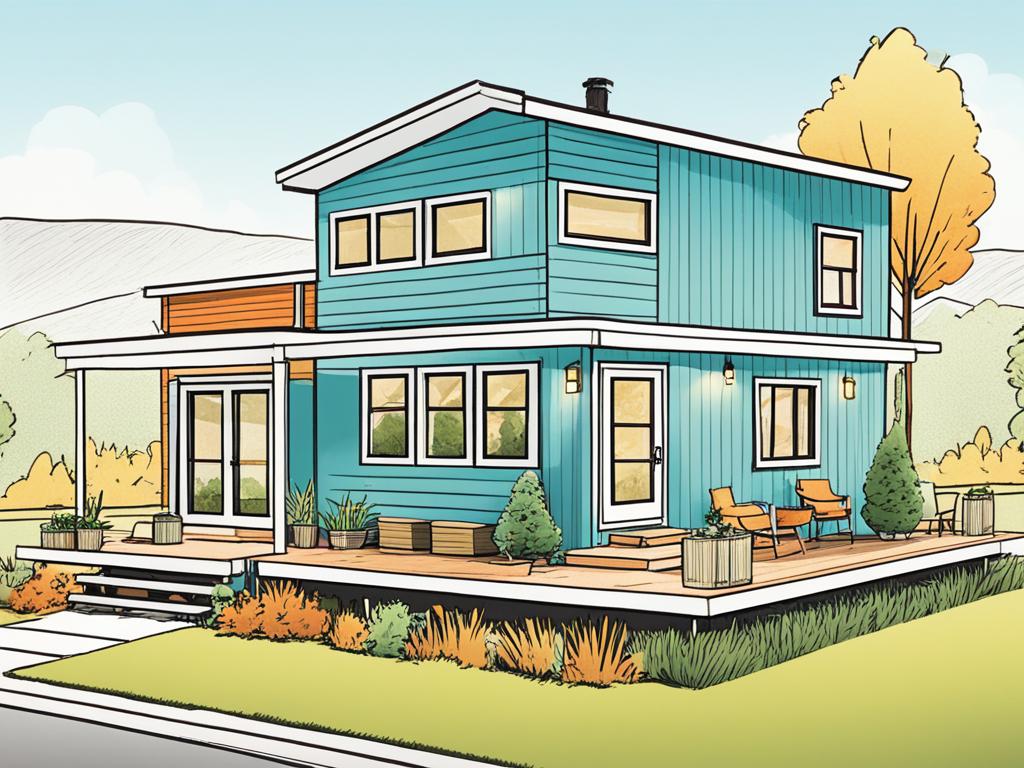
Energy-Efficient Designs
Energy efficiency is another key trend driving the future of the modular homes industry. With a growing emphasis on sustainability and reducing carbon footprints, modular homes are being designed and constructed to maximize energy efficiency. This includes the use of energy-efficient appliances, insulation systems, and renewable energy sources such as solar panels. By prioritizing energy efficiency, modular homes provide cost savings for homeowners while minimizing their environmental impact.
Customizable Options
In response to evolving consumer preferences, modular home builders are offering a wide range of customizable options. Homebuyers can personalize their modular homes by selecting various design elements, finishes, and layouts. This customization allows individuals to create homes that reflect their unique styles and meet their specific needs. From open floor plans to custom kitchens and bathrooms, modular homes offer flexibility and personalization, making them an attractive option for many buyers.
In conclusion, the future of the modular homes market in the UK is promising, with a strong focus on sustainability, energy efficiency, and customization. As the demand for affordable and environmentally friendly housing solutions continues to grow, the modular homes industry is poised for steady expansion. With ongoing innovations and advancements in modular construction techniques and design, modular homes are becoming an increasingly popular choice for individuals and families looking for quality, cost-effective, and customizable housing options.
Conclusion
In conclusion, the modular homes market in the United Kingdom is experiencing steady growth, driven by the increasing demand for sustainable and affordable housing solutions. Modular construction offers several advantages over traditional construction methods, including cost-effectiveness, faster construction time, and flexibility in design.
Key players in the market, such as Red Sea Housing, Westchester Modular Homes, and Clayton Homes, are focused on innovation and customization to cater to the diverse preferences of customers. With the increasing global emphasis on sustainability and energy efficiency, the modular homes market is expected to witness significant growth in the coming years.
The modular homes market analysis reveals a promising future outlook, with trends such as modular homes with smart technology integration and energy-efficient designs gaining traction. Governments and industry players are actively investing in developing innovative modular construction techniques to meet the growing housing needs.
Overall, the modular homes market offers a viable solution to address the challenges of the residential housing market by providing sustainable, affordable, and customizable housing options for individuals and families across the United Kingdom.
FAQ
What are modular homes?
Modular homes are prefabricated buildings or houses that consist of repeated sections called modules. These sections are constructed off-site and then delivered to the intended site for installation.
Why are modular homes becoming popular?
Modular homes are becoming popular due to their cost-effectiveness, faster construction time, and flexibility in design. They also offer sustainable and energy-efficient housing solutions.
What are the advantages of modular homes?
Modular homes offer several advantages over traditional construction methods, including cost-effectiveness, quicker construction time, and the ability to customize the design to meet specific preferences.
Who are some key players in the modular homes market?
Some key players in the modular homes market include Red Sea Housing, Westchester Modular Homes, Modular Space Corporation, Clayton Homes, Wernick Group, Algeco Scotsman, and more.
What is the future outlook for the modular homes market?
The future outlook for the modular homes market looks promising, with increasing demand for sustainable and affordable housing solutions. The market is expected to witness steady growth driven by factors such as population growth, urbanization, and the need for housing in emerging economies.


